Sivka-burka, sword-kladenets and stuff: what do the fairy terms of our childhood
By Pictolic https://pictolic.com/article/sivka-burka-sword-kladenets-and-stuff-what-do-the-fairy-terms-of-our-childhood.htmlIn early childhood, listening to tales and legends, we learned about the existence of many things and characters that do not exist in real life. Few thought about it, but now it's time to find out what are the Kalinov bridge, sword-kladenets, Sivka-burka and Tugarin Slavic.
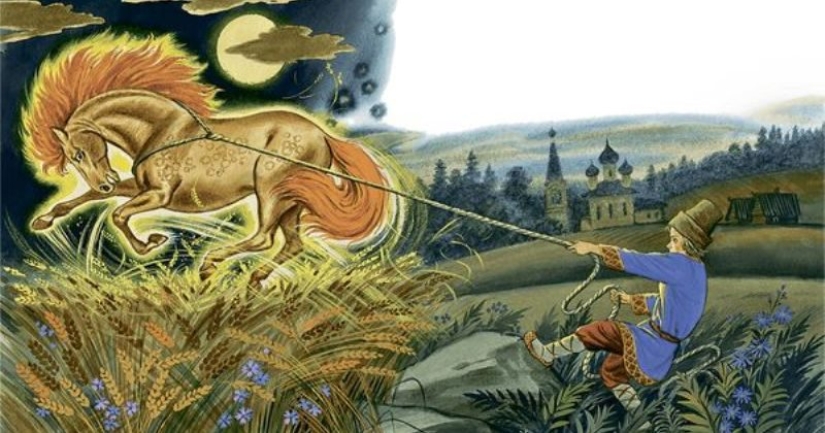
Every educated person must be aware of the meaning of words used by or that is often heard. Our selection of epic, fairy of terms is not exhaustive, as a complete reference for sure may look like a weighty Tome. But the most common phrase that cause many questions, we will interpret you.
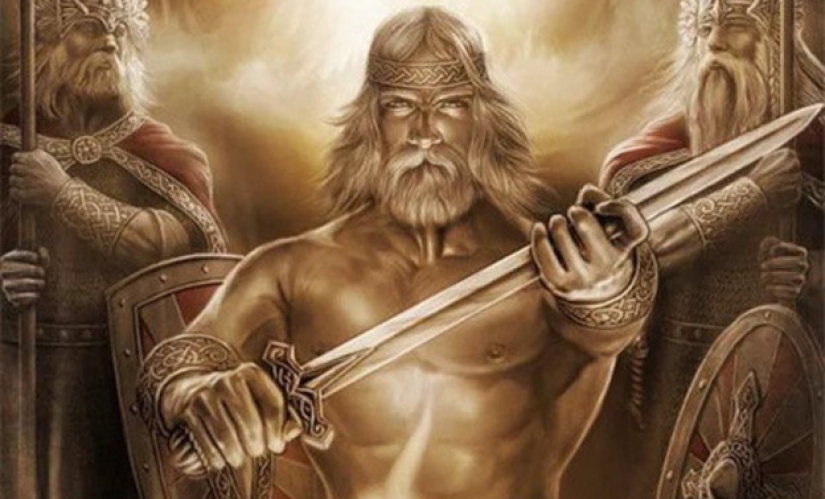
Artist I. Ozhiganov
It is a cold weapon with a strange name most frequently mentioned in Russian fairy tales and epics. Many people mistakenly believe that the sword is called magic spot as he "puts" enemies. In fact it is not so, and the sword kladenets is called so because it is taken from the treasure.
That is a weapon taken from a secret, well-camouflaged place. It is possible that the sword is taken not just from the treasure, and out of someone's grave in the old days it was decided to bury soldiers with weapons. Swords in Russia was very much appreciated, and good swords were at a premium, so it can be assumed that someone went on a serious sin to get from the burial of legendary weapons.
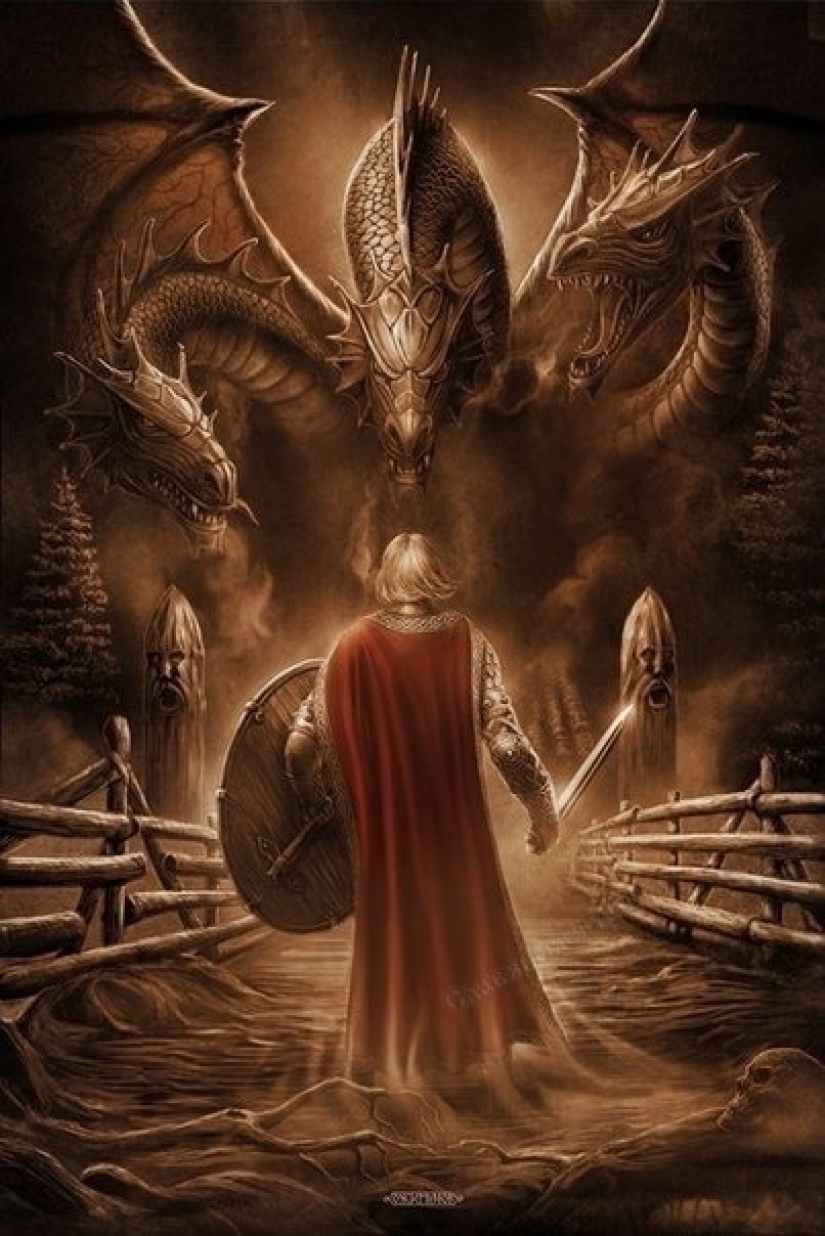
Artist I. Ozhiganov
At the mention of this construction we try to present ingenious engineering construction, woven from frail twigs of viburnum. Or, at worst, a bridge of solid oak, the entrances to which are densely frame the snowball bushes. The name of the river on the bridge, where they like to fight to the death warriors, not cause problems in such place names in the vastness of Russia today full.
But in the history of the bridge over the river turns out to be worse than you could imagine. The Currant river got its name not because of the currant, but because of smoreda, that is the stench that was making its waters. But Kalinov bridge has very little to do with Kalina, because he is "hot", that is hot. She Kalina got its name for the same reason — its ripe berries look hot.
Therefore, in a simple story with the battle of Hercules with the multi-headed serpent on the hot bridge over the river foul play is typical of many European Nations history about the river of Death that separates our world from the afterlife realm and the beast guarding this transition.
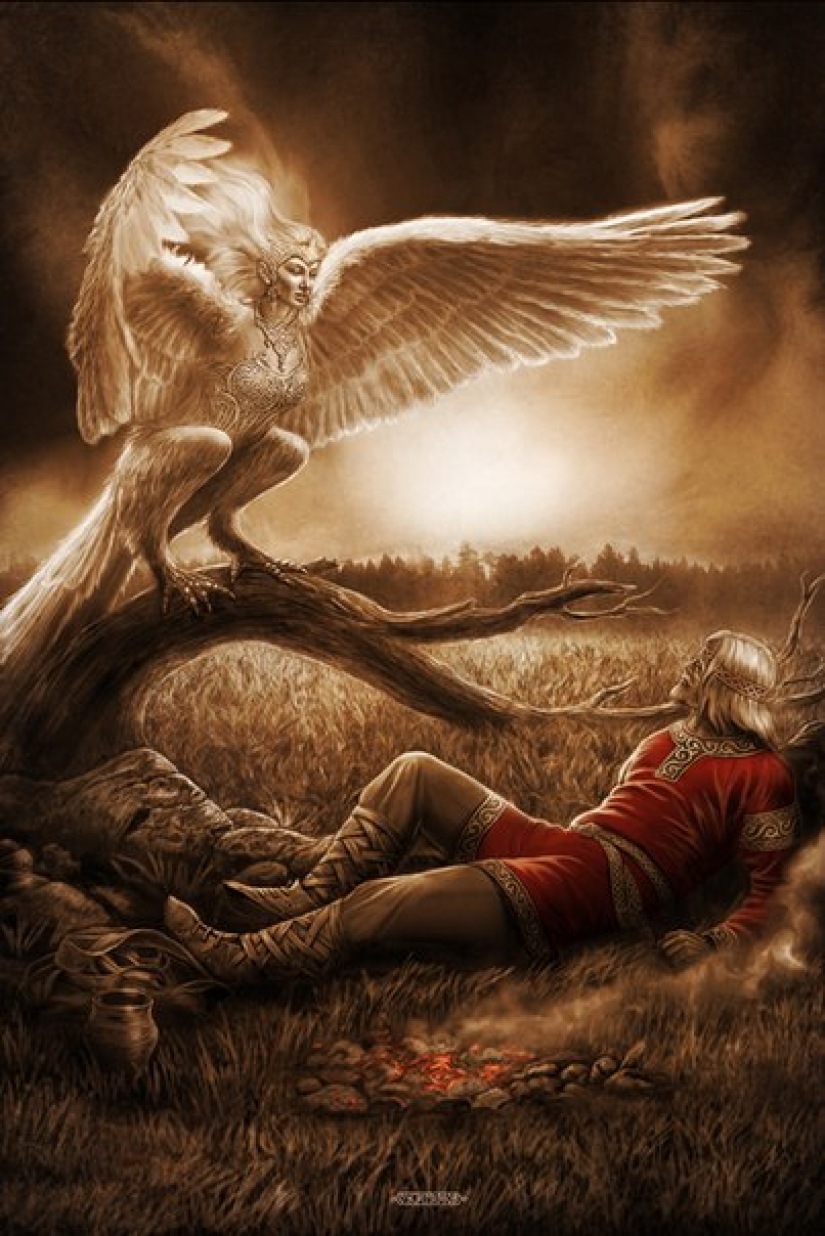
Artist I. Ozhiganov
Immediately it should be said that the Finist the Falcon was not immediately. The tale of a magical groom appeared among the Slavs much earlier than the Greek came with a book of wisdom the word of Finist, and to put it simply — Phoenix. Bird burns in a fire, and then again rising from the ashes, struck to the heart impressionable Russian storytellers, and it was immediately dragged to a rather battered plot into birds.
As for living in Paradise Sirin birds singing beautiful, dispersing sorrow songs, it is also borrowed from the Greeks. True, the Greeks were the sirens, who called Paradise birds could not even stretch. Second humanoid bird of Paradise Alkonost, singing sad songs, appeared thanks to the Greek myth of Alcyone transformed by Zeus into a Kingfisher.
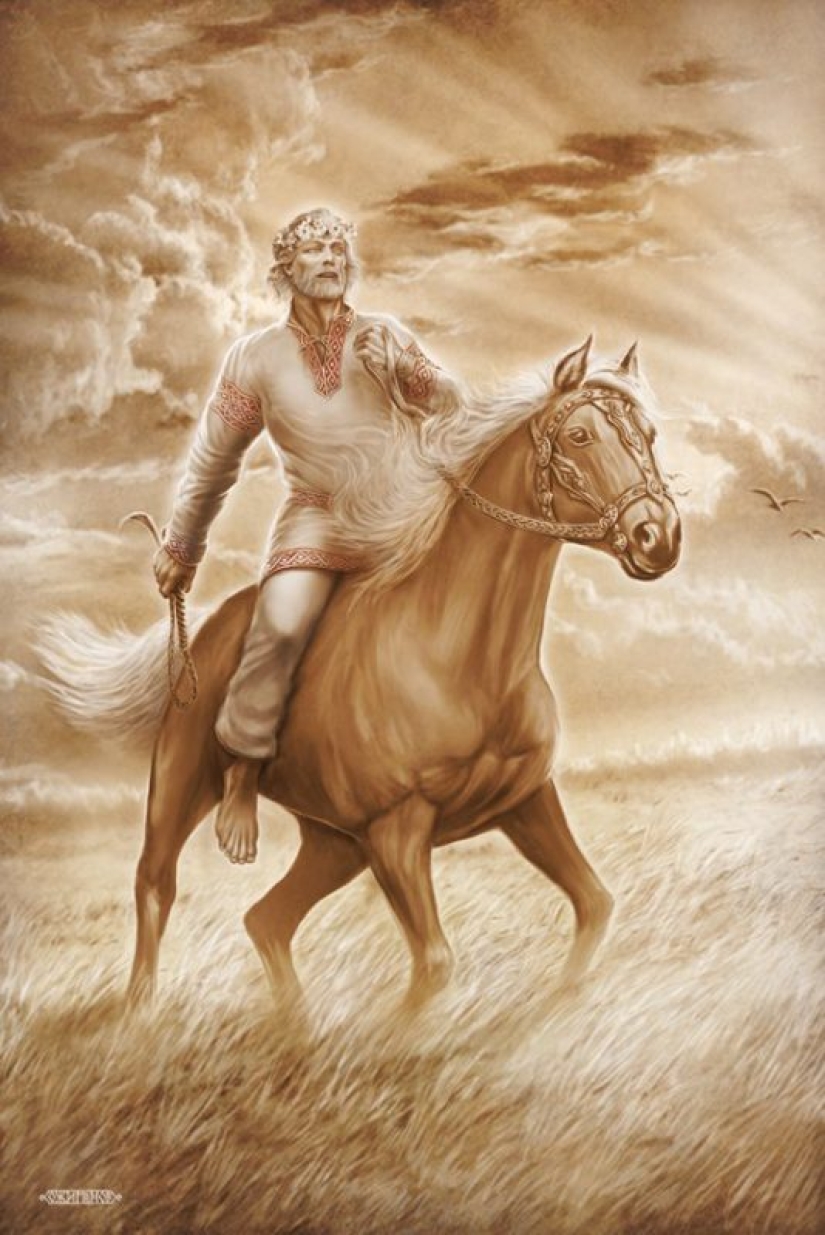
Artist I. Ozhiganov
In valiant cry "Sivka-burka, prophetic kaurka", addressed to the horse, contains serious contradictions. The fact that the gray, brown, and spotted the suit is not the same thing. One thing unites them — all three were considered signs of a purebred, cheap horses.
Therefore, calling thus the animal, the owner expressed to him neglect. But why call it a magical horse that can carry the host through the air at great distances? Clearly, here intervened ancient superstitions associated with bad luck.
Good horses in Russia it was decided aloud to curse, not to cause anyone envy. Hence the "soft" address to the horse "wolf nutsedge, herbal bag". We can say that calling his horse Sivkov-burka his owner takes care of him and metaphorically tells us that they really value.
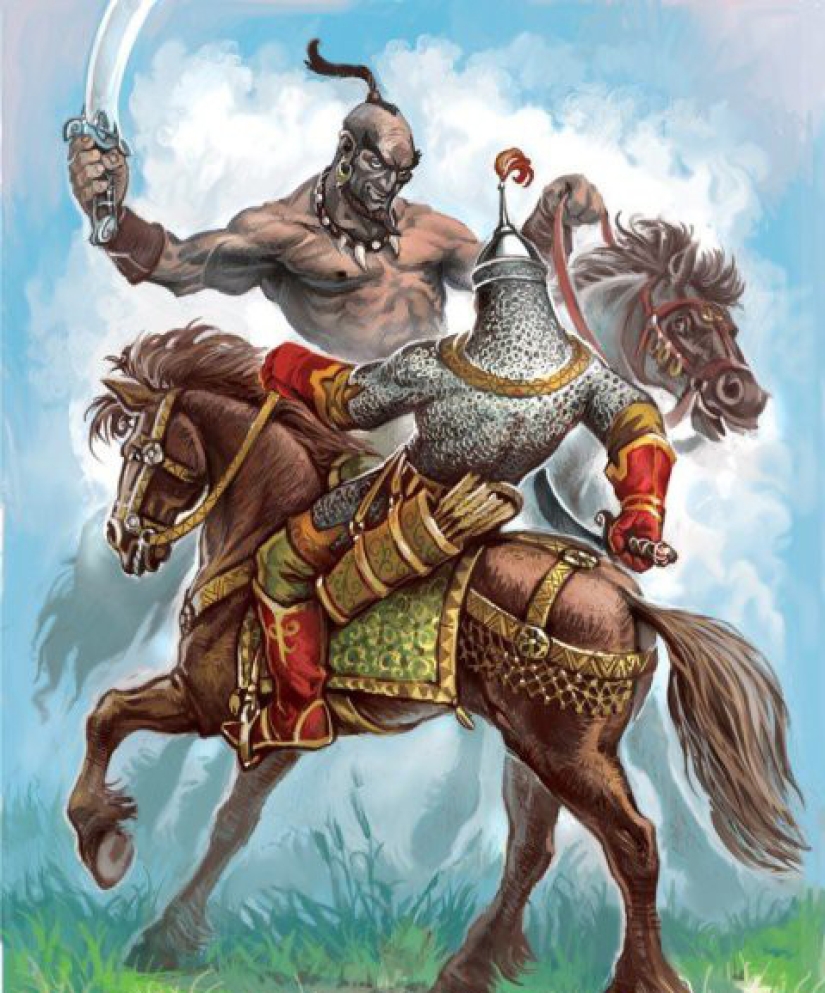
Epic rival of the hero Alyosha Popovich Tugarin Slavic has a real prototype. At the end of the XI century by Prince Svyatopolk much annoyed Polovtsian raids Prince Tugorkan. Out of all the fact that Svyatopolk had to marry the daughter of his enemy to peace. But Tugorkan calmed down, and son-in-law had yet to kill.
In folk art unpronounceable Tugorkan and quickly transformed into Tugarin. The patronymic Slavic that character has received for his misbehavior. Yes, this character has many names in Russian folklore: Zmey Tugarin the Serpent of Therein, Slide Tovarishi.
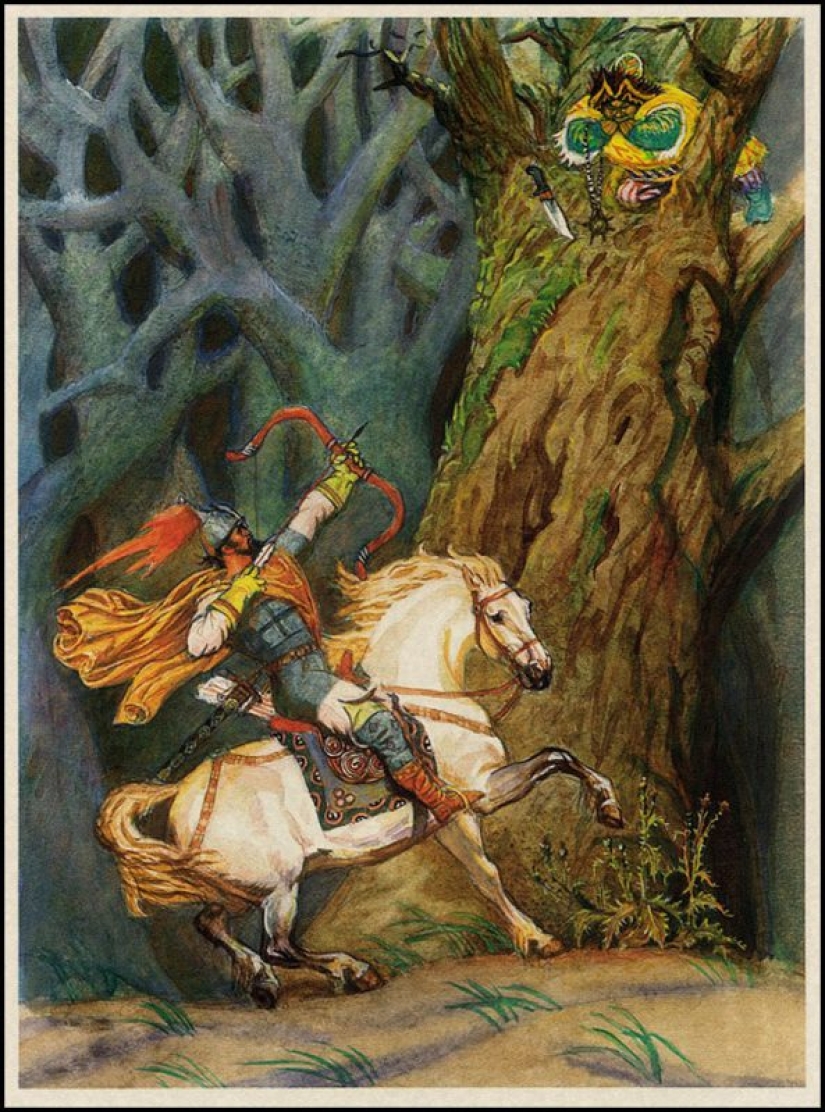
Artist V. Leggings
The most famous negative character of Russian folk tales, no doubt, is a brigand. Hunted the villain on the road, lying in wait travelers, and entire squads. This hero came in folk epic also from real life. It turns out, the prototypes have Nightingale the robber had a few and they lived in different times.
We are talking about the three leaders of robber bands named Nightingale, was operating in Russia since the XIII to the XVI century. The ambush robbers usually arranged in the bushes or in trees, a secret team filed each other, masterfully imitating bird calls.
The most famous of these three chieftains were Mordovian the robber Nightingale, who was caught in the XV century Novgorod squad. He, along with fellow robbery and sons accomplices were tried and, according to the imposed sentence, executed in the main square.
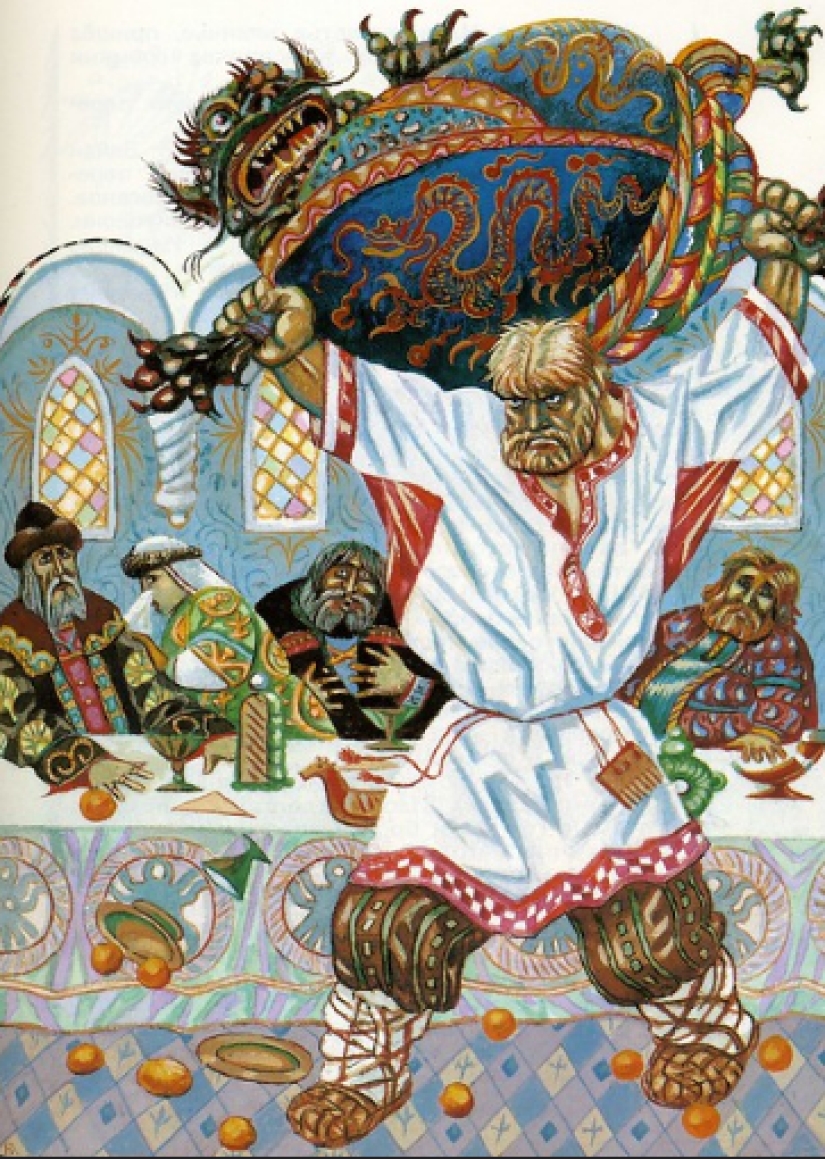
Under the victory Ilya Muromets over the Idol trash means the crushing of the hero image of a pagan deity. Idol is a statue of a pre-Christian God, and is of Latin origin an adjective "filthy" has long been customary to attach to anything that relates to paganism. Well, that Idol ate, drank and cursed the hero — this is a fiction designed to make the story more exciting.
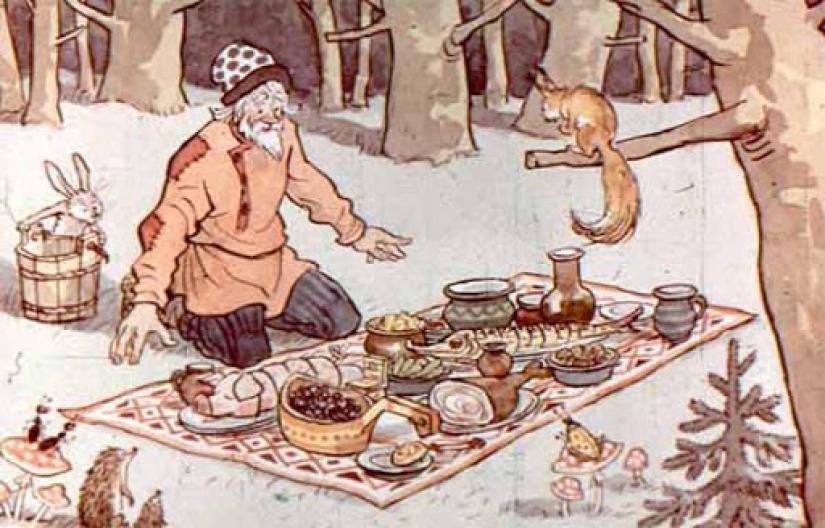
Many people dream of magic magic tablecloth, in reality, exist just could not. But the term itself already existed many centuries ago and were treated to a very real subject. With a cloth-cloth in the Russian principalities called expensive, richly decorated with ornaments of cloth, not made in weaving machines and manually.

Artist I. Ozhiganov
Lukomorye in the old days was called a Gulf, Bay, or just pronounced curve of coastline. The word Lukomoria found on some nautical charts of the XVII century, where they represent the bays of the Northern seas, such as the Kara or White.
In addition, some anthropologists believe that the Curving could be a real place that existed in the XV—XVII centuries of ecah. It is assumed that it was a long Bay of the Kara sea near the mouth of the Ob river. Later the name was transferred to the folklore and came to refer to a distant fairytale countryside, populated by mythical creatures.
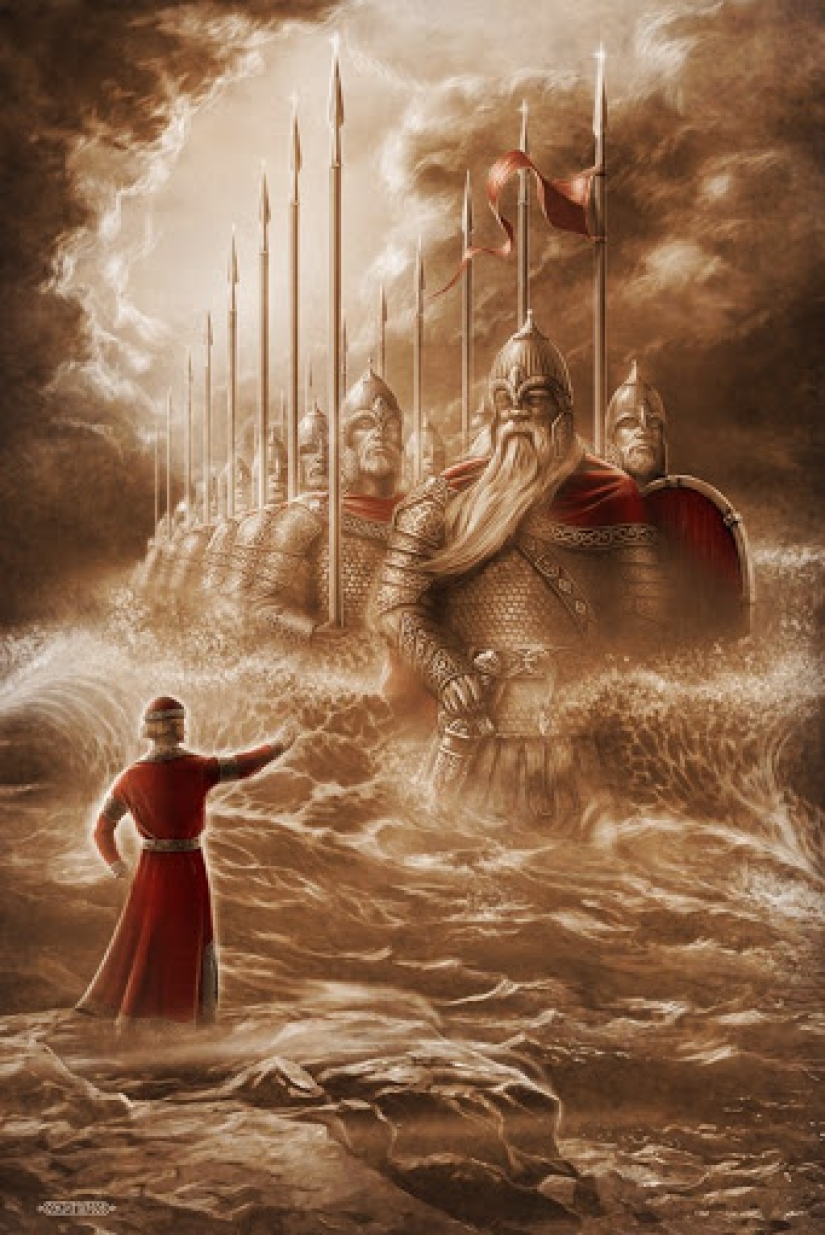
Many people think that uncle Chernomor gave us of A. S. Pushkin, who invented this character to their poems. The genius of Russian literature of this character occurs twice — once as the leader of the 33 heroes, emerging from the depths of the sea in "the Tale of Tsar Saltan", and the second time in the poem "Ruslan and Ludmila" as a vicious bearded dwarf sorcerer.
It seems that the name of this controversial hero directly connected to the Black sea, but it's not. I have to admit that Pushkin invented a bargain, but borrowed it from a poem of his contemporary N.M. Karamzin's "Ilya Muromets". Karamzin, the black sea was not related to the seas in General, and commanded the "black plague" that is the plague.
Koschey the deathless, Baba Yaga and the dragon personality is multifaceted and very important, deserve a separate, detailed story.
Keywords: The hero | The Ancient Rus | Bridge | Bird | Russian | Stories | Falcons | Paganism
Post News ArticleRecent articles

In early 1960, American photographer and journalist Carl Midans, commissioned by LIFE magazine, made a series of stunning color ...

The seemingly dangerous photos were actually taken under the close attention of trainers. This is how the shots turned out with a ...
Related articles

Walking through this picturesque bridges, you can admire the views from these stunning views and breathtaking landscapes. We invite ...

The Brooklyn Bridge is much more than just an amazing architectural structure. This is part of the history of the United States. ...

There are many fascinating and alluring places in the world with their mystery. One of these is located in the arboretum of the ...

Scenic and wild homeless have become an integral part of the landscape of the big city. Wherever there are horizontal any surface ...